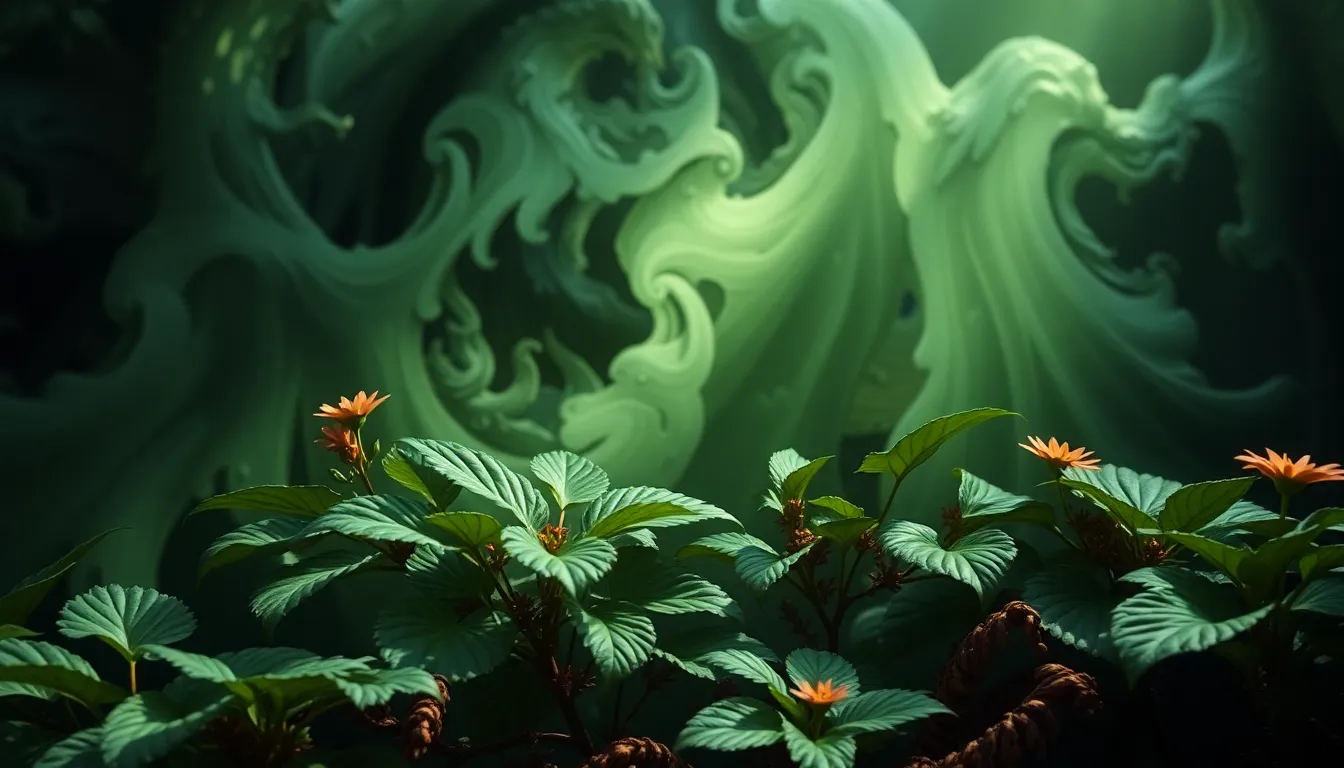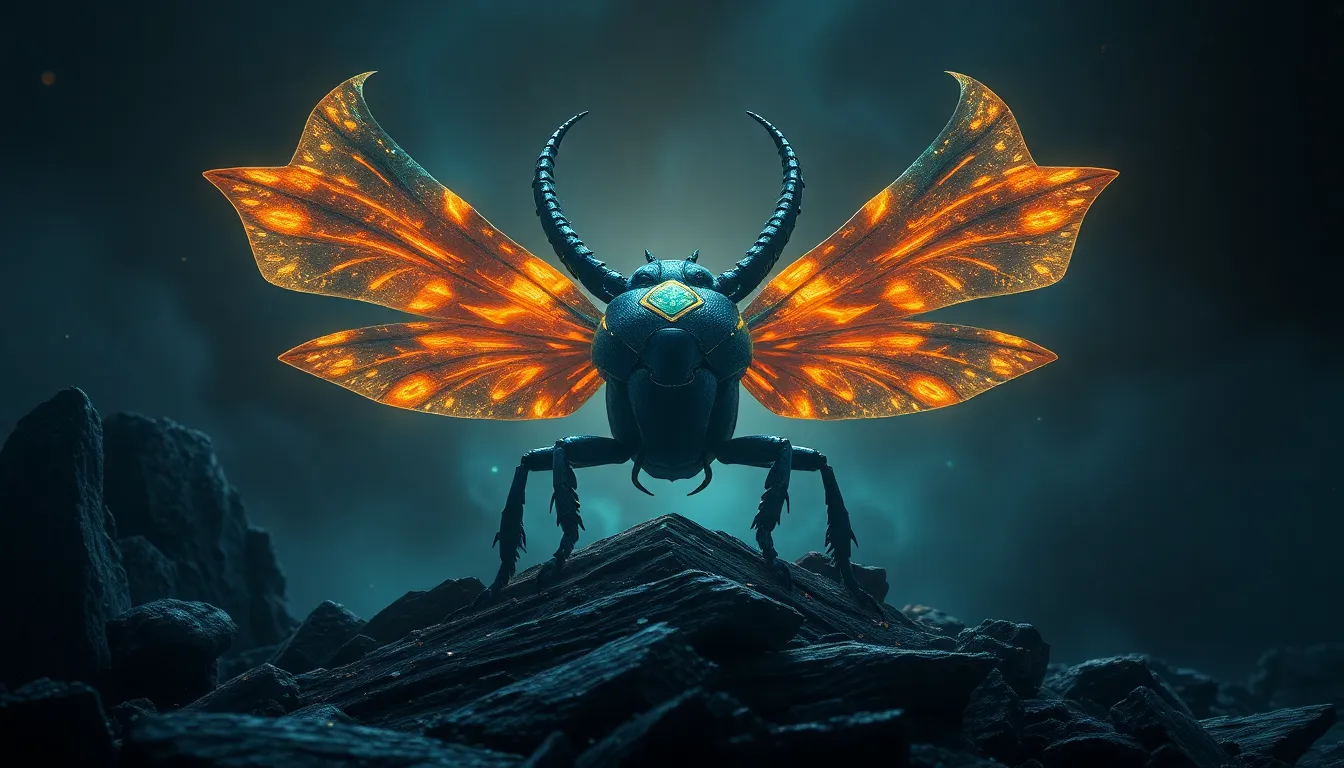The Rich Tapestry of Thai Mythology
Thai mythology is a captivating world filled with fascinating stories, deities, and mythical creatures. It weaves together ancient Hindu and Buddhist beliefs, creating a vibrant tapestry of cultural heritage. The ancient Thai people, like other cultures across Southeast Asia, looked to the natural world to explain the forces that governed their lives. From the towering mountains to the churning seas, they found inspiration in the animals, plants, and celestial bodies that surrounded them. This belief system, infused with elements of Hinduism and Buddhism, gave rise to a rich collection of myths and legends that continue to be passed down through generations. Thai mythology offers a glimpse into the cultural values, beliefs, and aspirations of the Thai people. The stories serve to educate, entertain, and inspire, offering timeless lessons about morality, virtue, and the cyclical nature of life.
Key Deities in the Thai Pantheon
In the heart of Thai mythology lies a pantheon of powerful deities, each with their unique roles and responsibilities. These gods and goddesses are central figures in many Thai myths, representing forces of nature, human emotions, and cosmic order. The Thai pantheon is largely influenced by Hinduism, with a prominent trinity known as Trimurti: Brahma, Vishnu, and Shiva. This trinity, along with other deities, plays a crucial role in shaping the fabric of Thai mythology.
Brahma: The Creator
Brahma, depicted as a four-headed being, is revered as the creator of the universe. He represents the force of creation, bringing order and life out of the void. In Thai mythology, Brahma is associated with the cosmic egg, representing the primordial state from which the universe emerged. He is also seen as the source of knowledge and wisdom, often depicted holding a sacred book or teaching deities and humans alike. Brahma, as the creator, symbolizes the constant cycle of creation and renewal that is inherent in both nature and human life.
Vishnu: The Preserver
Vishnu, the preserver, stands as the protector of the world and the upholder of cosmic order. He embodies the principle of balance and harmony, ensuring the stability and well-being of all creation. Vishnu is often associated with the preservation of righteousness, fighting against evil and restoring balance to the world. He is depicted with blue skin, riding a Garuda, a mythical bird, and holding a conch shell, a discus, a lotus flower, and a mace, representing his divine powers. In Thai mythology, Vishnu is revered for his compassion and kindness, seen as a benevolent force that protects the world from chaos and darkness.
Shiva: The Destroyer
Shiva, the destroyer, is a complex and multifaceted deity. He embodies the destructive force of nature, representing death, change, and transformation. He is depicted in various forms, often with a third eye and a serpent around his neck, holding a trident and a drum. Shiva's destructive nature, however, is not inherently negative. He represents the cleansing power of destruction, paving the way for renewal and rebirth. In Thai mythology, Shiva is associated with yogic practices and meditation, embodying the power of self-control and inner transformation.
Indra: King of the Gods
Indra, a powerful and influential deity, holds the title of King of the Gods in the Thai pantheon. He is associated with thunder, lightning, and rain, reflecting his control over the weather and the celestial realm. Indra is often depicted riding an elephant named Airavata, carrying a thunderbolt and a vajra, a ritual weapon used in ceremonies.
Indra is a protector of the righteous and a fierce warrior, fighting against demons and evil forces. He is also seen as a patron of the arts, particularly music and dance. Indra's role in Thai mythology is multifaceted, representing the power of nature, the force of righteousness, and the beauty of artistic expression. He serves as a reminder of the divine power that governs the world and the importance of upholding moral values.
Yama: The God of Death
Yama, the god of death, plays a crucial role in Thai mythology, guiding souls to the afterlife. He is often depicted as a fierce figure, riding a water buffalo and holding a staff. Though associated with death, Yama's role is not solely one of judgment and punishment. He is also seen as a guide and a mediator between the mortal realm and the afterlife.
In Thai mythology, Yama is responsible for judging the souls of the deceased, weighing their good and bad deeds to determine their fate in the afterlife. He is often associated with the concept of karma, the law of cause and effect that governs the cycle of life, death, and rebirth. Yama serves as a reminder of the consequences of our actions and the importance of living a virtuous life.
Lakshmi: Goddess of Wealth and Prosperity
Lakshmi, the goddess of wealth and prosperity, is a beloved figure in Thai mythology. She is depicted as a beautiful woman, often adorned with jewelry and sitting on a lotus flower. Lakshmi is associated with abundance, good fortune, and material well-being. The goddess is known for her generosity and blessings.
Lakshmi's presence is believed to bring good luck and prosperity to those who seek her favor. She is often invoked in rituals and ceremonies related to wealth, business, and financial success. Lakshmi represents the desire for a comfortable and prosperous life, a common theme in Thai culture.
Saraswati: Goddess of Knowledge and Music
Saraswati, the goddess of knowledge, music, and the arts, is revered for her wisdom and creativity. She is depicted as a beautiful woman, often dressed in white and playing a veena, a stringed instrument. Saraswati is associated with learning, education, and the pursuit of knowledge.
She is invoked by students seeking wisdom and inspiration. As the patron of music and the arts, Saraswati is also celebrated in performances and festivals. Saraswati represents the pursuit of knowledge and the power of the arts to inspire and uplift.
The Influence of Hinduism and Buddhism
Thai mythology is heavily influenced by both Hinduism and Buddhism, two major religious traditions that have shaped Southeast Asian culture for centuries. These religions provide the framework for the Thai pantheon, the stories of the gods and goddesses, and the beliefs about the afterlife.
Elements of Hinduism, such as the Trimurti (Brahma, Vishnu, Shiva) and the concept of karma, are prevalent in Thai mythology. Buddhism's teachings on the cycle of birth, death, and rebirth also play a significant role in shaping the Thai worldview. The integration of Hindu and Buddhist beliefs has created a unique and vibrant tapestry of mythology that is distinctly Thai.
Theories on the Origins of Thai Mythology
The origins of Thai mythology are shrouded in mystery, with various theories put forth by scholars and researchers. Some believe that the roots of Thai mythology can be traced back to ancient animistic beliefs, where spirits and deities were associated with natural phenomena, such as mountains, rivers, and forests.
Others suggest that the influence of Hinduism and Buddhism, which arrived in Southeast Asia through trade and conquest, significantly shaped the development of Thai mythology. Further research and exploration are needed to fully understand the origins and evolution of Thai mythology.
FAQ
What are some key deities in Thai mythology?
Some key deities in Thai mythology include Brahma, Vishnu, Shiva, Indra, Yama, Lakshmi, and Saraswati.
How is Thai mythology influenced by Hinduism and Buddhism?
Thai mythology is heavily influenced by Hinduism and Buddhism, with elements of both religions shaping the pantheon of gods and goddesses, beliefs about the afterlife, and the concept of karma.
What are some key themes in Thai mythology?
Key themes in Thai mythology include the power of nature, the cycle of life and death, the importance of virtue, the pursuit of knowledge, and the belief in a divine order governing the universe.
How does Thai mythology differ from other mythologies?
Thai mythology is distinct from other mythologies due to its unique blend of Hindu and Buddhist influences, creating a vibrant tapestry of beliefs and stories.



